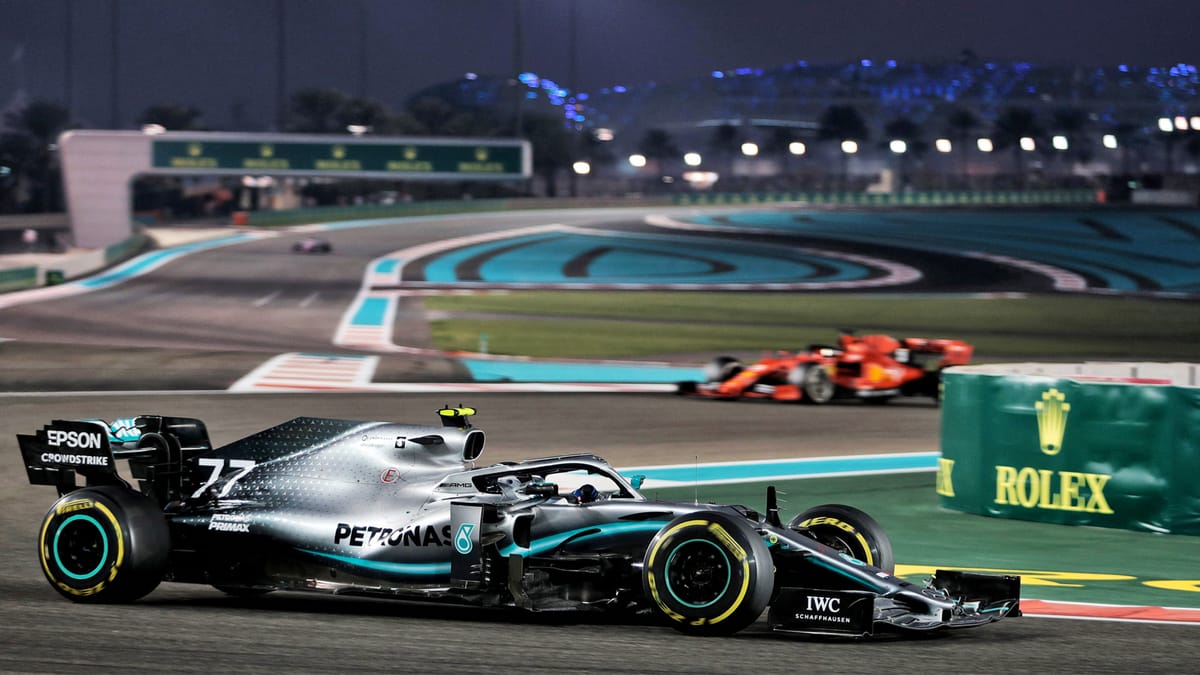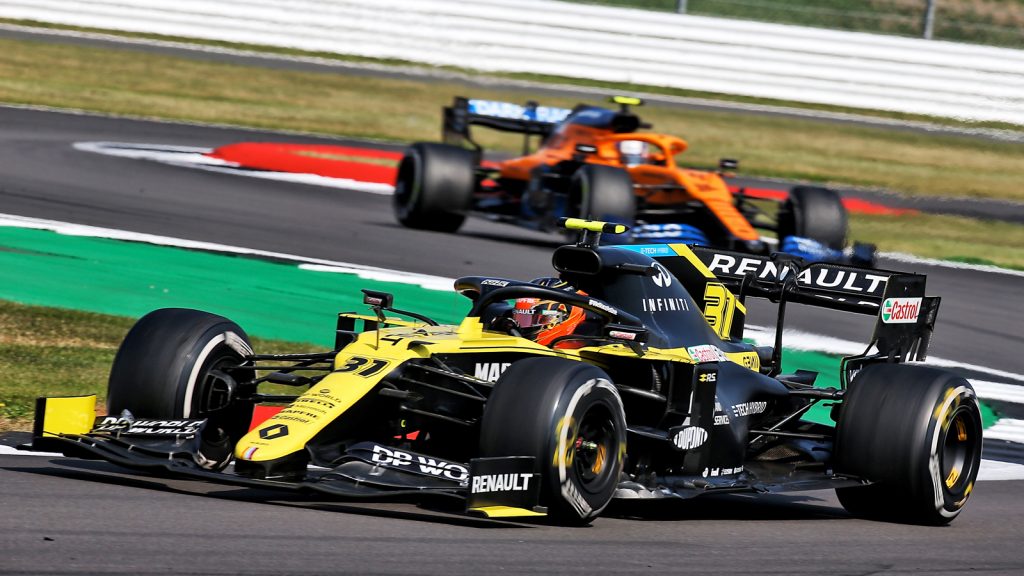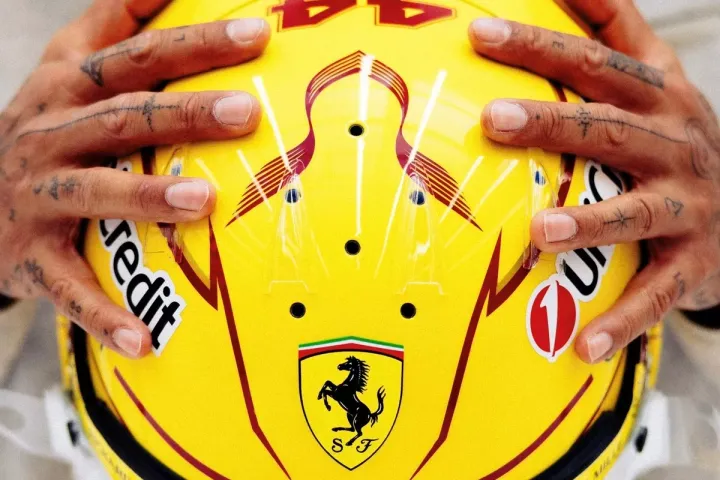Worries About F1 Finale

The troubled 2020 grand prix season has run surprisingly smoothly but there are still question marks hanging over the culmination of this year’s world championship.
Formula 1 is by nature a world of positive and imaginative people who make things happen, even in the face of adversity.
The sport’s handling of the Covid-19 pandemic has been fairly impressive, given what some other sports have gone through.
However, the latest second wave lockdowns are a challenge – and the timing is not good given how the remaining races fall.
The Emilia Romagna Grand Prix at Imola was the 13th race of the season, with four more GPs planned between through to December 13.
The Constructors’ World Championship was settled at Imola with Mercedes winning a record-breaking seventh consecutive title.
Lewis Hamilton can win his seventh Drivers’ title with victory at the next race at Istanbul in Turkey, although he would also win the title if the race was cancelled as he has an 85-point advantage over his team mate Valtteri Bottas with 104 available.
If there were only three races there would be only 78 points available and so the title would be his.
The problem is that Formula One needs to hold at least 15 races in order for the major commercial contracts to become fully valid and the signatories will then have meet their obligations, although there will likely be discussions about discounts for races that did not happen.
The original plan for 2020 was to have 22 races and so, with only 15 on the current scheduling, that is basically a drop of 32 per cent in terms of revenues.
And it will be worse than that because many of the races that have happened have only taken place because there were bargain basement deals on offer to circuits that cannot normally afford F1 and, in some cases, F1 rented the tracks and did not get paid any fees.
This was deemed to be the best way to get to the required number of races.
In other words, F1 still needs two races this season, although we have heard that attempts have been made to argue that Australia should count as an event in contractual terms because the cancellation was caused by ‘force majeure’, a legal concept that covers such things as civil strife, aircraft, flood or fire damage, terrorism and so-called ‘Acts of God’.
The current commercial agreements are understood to have a specific reference to ‘health pandemics’ as well.
It is estimated – and that is all it can be at the moment – that overall revenues will be down by at least 50 per cent, even if the championship gets to 15 races. If it cannot get to that number, the financial impact will be worse.
This is important because the prize fund is calculated based on the overall revenues and that means that team revenues will be down significantly.
For some teams this is reason to change drivers in order to get more revenues to cover the likely shortfall.
This is certainly true of Haas, which will at some point announced that it will be replacing Romain Grosjean and Kevin Magnussen with Mick Schumacher and Nikita Mazepin. This is probably being held up because it is still possible that the Russian could fail to get a Superlicence, although if races are cancelled he would now have enough points to qualify.
At Imola, everyone seemed rather blasé about the new Covid lock-downs in Europe, believing that the sport can get by with British government quarantine exemptions because that is where the majority of teams are based.
There is little doubt that if one team was unable to attend a race (because they are based in the wrong place) the event would go ahead without them because of the need to secure the commercial contracts. Things only become complicated if there are fewer than 14 cars.
But there are an awful of questions about how the remaining races can take place, given the logistical problems, the constantly-changing rules of quarantine in different countries and for different nationalities.
There is also the question of the availability of aircraft to get the thousands of people required to each venue. There are F1 charter flights going out from Luton to Istanbul’s Sabiha Gokcen Airport, which is close to the track. These are expensive and while commercial flights are still flying at the moment they may not be next week.
For Bahrain there are currently no F1 charters but that may change if commercial flights disappear.
There are presently no restrictions on getting into Bahrain from the usual airline routings, but everyone who arrives must be tested at the airport and then quarantine in their hotels until they are found to be negative.
The biggest problem appears to be Abu Dhabi, where there is a requirement for a 14-day quarantine for anyone entering the country. However, it seems that the government has agreed to create an “air-corridor” for those arriving from Bahrain for the grand prix on F1 charters, so long as they are arriving from a secure area where they are tested regularly. They must then test again at the airport with quarantine until the results are known, and they must have spent at least six or seven days in Bahrain so that they are in an established cycle of Covid-19 tests.
Negotiations are still ongoing about people flying directly into Abu Dhabi from Europe for the race and there is talk of tests prior-to flying and on arrival and after a 48-hour quarantine period. This could be confirmed by the government next week.
However, the other point is that the UAE authorities want to create a ‘ biosphere’ on Yas Island and so everyone in F1 will need to stay in hotels there, which will be complicated given all the different ‘bubbles’ involved. And, of course, they are not cheap.
There are other questions about health insurance policies which may be invalid if those insured go into countries which governments advise against visiting. With the British lockdown the government is advising against all travel. And on top of all this, some countries still want access by visa only… If all goes to plan, the British lockdown will begin on Thursday and will remain in place until December 2, although it is very clear that this could be extended if statistics do not improve.





